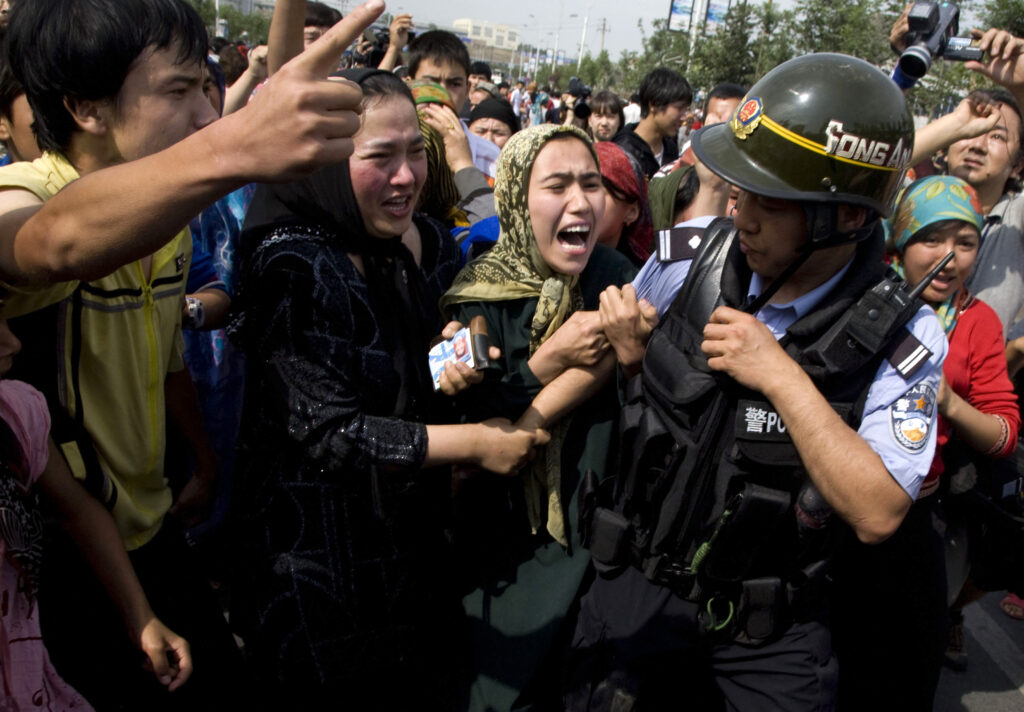Stifling Dissent and Silencing Criticism: The CCP way of Sinicizing Xinjiang

China’s authoritative rule has taken a vicious turn of its own. With accounts of brutal suppression in Xinjiang, the Chinese Communist Party (CCP) seems to be on a path of complete Sinicization among diverse cultures that exist in China.
The multifaceted strategy of Sinicization in the Xinjiang region has systematically eroded the cultural influence of indigenous Uyghurs. Through detrimental policies such as economic and political measures, the CCP has by and large remained successful in its vicious campaigns of forceful conversions of those that continued to believe in their traditional systems. However, even though these strategies have to a major extent achieved their objectives, the CCP seems to be further diversifying its methods in order to accelerate their complete Sinicization process.
The strategies for Sinicization in Xinjiang have included practices such as demographic engineering. By encouraging Han Chinese migration to the region through economic incentives and development projects, the Party is ensuring greater migration into the region from other regions in China. This migration is designed to change the ethnic composition of Xinjiang, turning Uyghurs into a minority in their own land.
Another major tactic that has intensified China’s strategy to supress minorities in Xinjiang has been the creation of a surveillance state. The province is one of the most closely monitored places in the entire world, with widespread use of cameras, facial recognition and data collection systems. These surveillance mechanisms not only control the daily lives of Uyghurs but also stifles dissent and enforces cultural conformity. Central to this strategy are the so-called re-education camps, where up to a million Uyghurs and other Muslim minorities have been detained. In these camps, detainees are subjected to political indoctrination, forced to abandon their religious and cultural beliefs while being indoctrinated with Party ideology.
The Chinese administration has also implemented severe measures to control religious practices, including the demolition of mosques and religious sites while also prohibiting the teaching of religion to the youth in Xinjiang. Furthermore, surveillance systems have been installed at religious sites with leaders closely being monitored and detained. This vicious strategy is also being complemented with the exploitation of the vast energy and strategic resources that the Xinjiang region sits upon.
Silencing International Criticism
Such practices have also raised international condemnation, with accusations of human rights abuses, including mass detentions, forced labour, and cultural repression. However, a notable silence has persisted among many Arab and Muslim-majority countries, which are traditionally seen as defenders of Islamic causes. Beijing has effectively restrained the Arab world from speaking out on the Uyghur issue by providing incentives in exchange for their silence.
To begin with, Beijing has strategically leveraged its economic and diplomatic clout to maintain silence from Arab nations on the Uyghur issue. The primary form of incentive has been economic, with China offering substantial investments, trade deals, and infrastructure projects under its Belt and Road Initiative (BRI). These economic ties have created a dependency for many Arab countries on Chinese investments, making them reluctant to criticize Beijing publicly. Within the sector of renewables, China has strategically placed its trade with the Arab country as an important facet to the Arab-China ties. Furthermore, the Party’s focus on mediating politically is also deeply tied to preventing the Arab world from speaking up on issues such as the Ugur’s issue.
China has also attempted to counter the negative perception of its treatment of Uyghur Muslims by engaging in Islamic diplomacy. This has included a range of strategies including hosting a large delegate of Arab leaders in China. Moreover, Beijing has also spent finances by building mosques in Arab countries, and emphasizing the narrative that China respects religious freedom within its borders. These efforts have largely attempted to whitewash Beijing’s brutal treatment of Muslims in Xinjiang. The Party’s mediation efforts have also secured for itself greater silence from the larger Arab world; by proving to be an important player in peace negotiations, Beijing has enhanced its stake as well as engagements in the region.
Furthermore, China’s diplomatic support for these countries, coupled with shared authoritarian interests, has resulted in a mutual understanding where both sides refrain from addressing each other’s internal human rights issues.
The combined impact of these strategies not only threatens the cultural and social identity of the Uyghurs in Xinjiang but also poses broader challenges for other minority groups in China along with disregarding international human rights norms. Therefore, it is important that relevant stakeholders come together to counteract the CCP’s efforts to erase the cultural relevance of minority groups in China.

 Ακολουθήστε το
Ακολουθήστε το